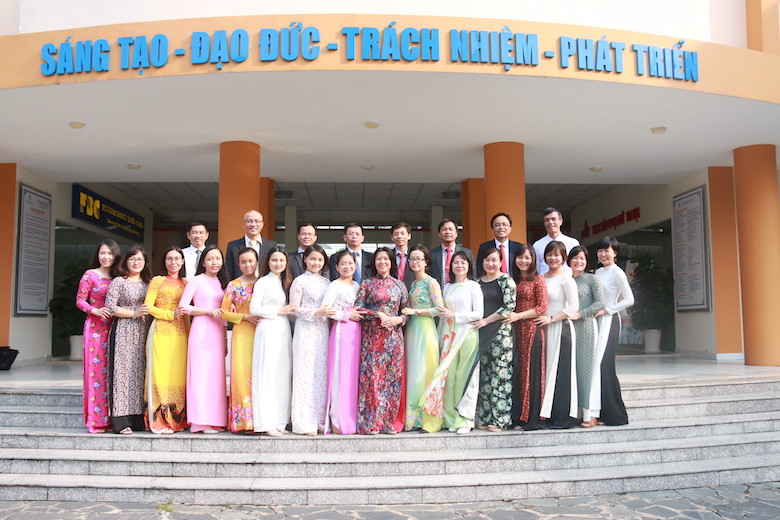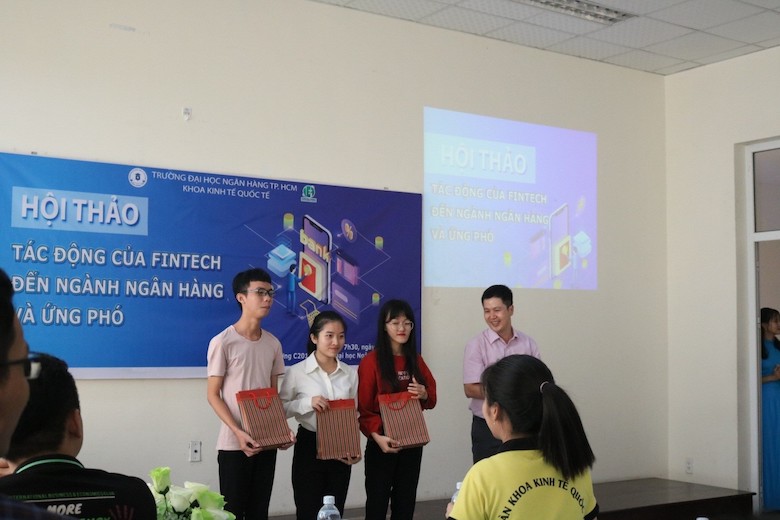International trade relations have had a long history as this is a natural and essential element for economic wellbeing and development. Nowadays, reaching the extremely large scale of different relevant factors including the development of maritime, aviation, information technology, free trade agreements, international trade institutions, trade activities, service provision, global investment, etc. has directly impacts on the existence of each nation.
In Vietnam, the total import and export value in 2021 reached 617 billion USD (up 13.2% compared to 2020 and doubled its GDP). Foreign direct investment (FDI) also accounts for 25% of the total investment approximately. The greater the openness of the economy is, the higher the degree of economic integration is, and this creates the greater demand for human resources with expertise in international economics and global business.
In addition, the inevitable development trend of digital transformation in business and management also poses a significant challenge in the supply of human resources. Specifically, this trend requires qualified employees with both economic knowledge and good understanding of technological advances in digital transformation such as cloud computing, big data, or modern programming languages. To meet such market demands, the HUB's Faculty of International Economics has interacted with industrial partners and policymakers to develop a new paradigm for academic training with updated educational programs.
 Lecturers from the faculty of International Economics
Lecturers from the faculty of International Economics
TRAINING OBJECTIVES
The bachelor's program of International Economics offers human resources with in-depth professional knowledge, solid procedural skills with the right ethics and attitudes and the ability to solve problems arisen in the field of international economy, as well as the ability to deploy and manage business activities, international investments, and solve problems for organizations or businesses.
The program equips students with general knowledge of economics, business, finance, quantitative analysis; general knowledge, and in-depth specialised knowledge of international trade policy, international investment, international finance, international business, abilities to integrate digital tools into the business management of multinational environments.
There are three academic programs in the Faculty of International Economics, including: International Economics, International Business, and Economics & Digital Business.
SUITABLE TRAITS
Keen on working in international environments
Agile, vivacious, and good at communication skills
Dynamic, confident, and decisive
Have logical deduction and good at mathematical ability
Adaptable to competitiveness as well as pressure
Passionate about business and management.
HIGHLIGHTS
The slogan of Faculty of International Economics (IEF) - Ho Chi Minh University of Banking is “Think globally and Act locally” (GLO*CAL=GLOBAL + LOCAL= Think GLOBAL + Act LOCAL). It means that the academic program focuses on a balance between theory and practice, aiming to equip graduates with an “overall vision, critical thinking mindset, and analytical ability”.
The lecturers are both competent and dedicated to provide learners with prompt support on their personal and professional development journey.
A wide range of extracurricular activities are provided to help students develop their expertise and life-long skills, including short-term training courses for customs processes, import and export activities, business tours, Logistics Talent Contest, and Start-up Group (organized by the International Business and Economics Club (IBEC)).
Some prominent club events and activities organised by IEF include the “Raise your Voice” contest, Chess tournament, Spring Volunteer, and Faculty's Incentive scholarships.
 Fintech conference organised by the faculty
Fintech conference organised by the faculty
ACADEMIC PROGRAMS
Standard programs
International Economics (program specification here)
International Business (program specification here)
Digital Business and Economics (program specification here)